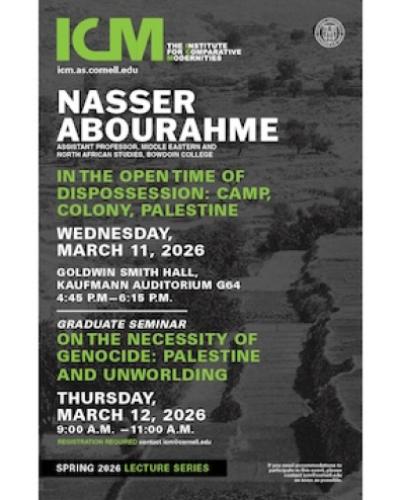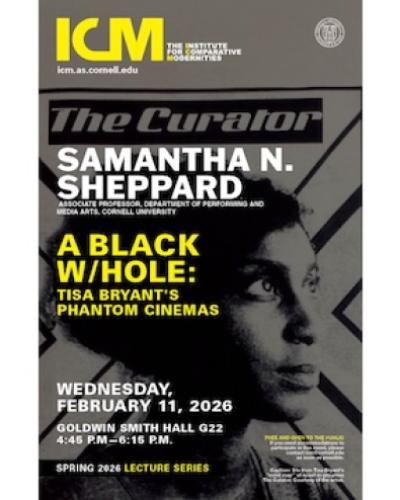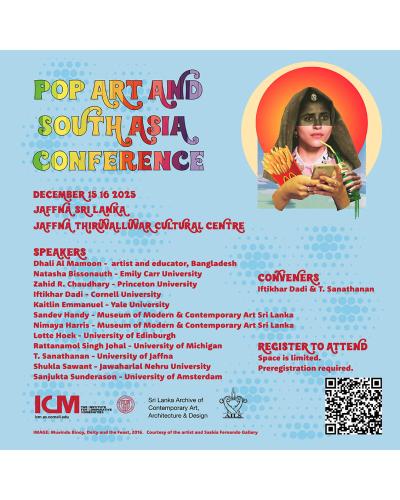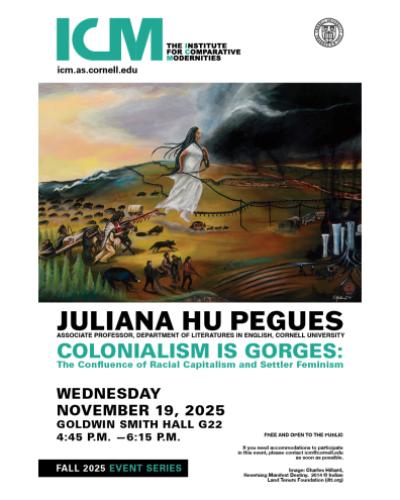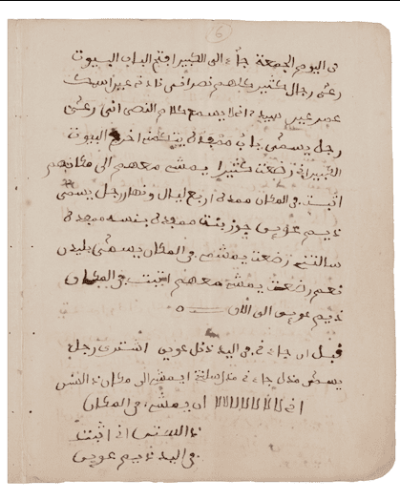The Institute for Comparative Modernites is delighted to announce the recipients of the inaugural Global South Translation Fellowships, grants of up to $5000 to complete translations of works from the Global South (Africa, Asia, Latin America, the Caribbean, etc) into English. This is a non-resident, remote fellowship designed to allow the recipient to complete the work outside of Cornell University. We received many more outstanding applications than we could support and look forward with excitement to future applications cycles. The 2021 awards from ICM will support the following translation projects:
Wendy Call’s translation of the 2013 poetry collection Stolen Flower (Guie’ ni zinebe / La flor que se llevó), from the Isthmus Zapotec and Spanish, by Irma Pineda
Guie’ ni zinebe / La flor que se llevó (Stolen Flower) is a collection of 45 poems by Irma Pineda, originally published in 2013 in a bilingual Isthmus Zapote/Spanish edition. Selected poems have been published in three languages in The Chicago Review. The collection explores gender-based violence against Indigenous communities, through multiple poetic voices. The author, Irma Pineda, is a spokesperson for the rights and autonomy of Indigenous Peoples, as well as for the families of disappeared persons.
Wendy Call is an award-winning writer, editor, translator, and educator based in Seattle-Tacoma, Washington. Her prolific writing takes many forms, particularly non-fiction essays that are published in numerous magazines and journals. Her Spanish-English translation work is currently focused on Indigenous women poets in Mexico and Colombia. She is associate professor in the English department at Pacific Lutheran University.
Chamini Kulathunga’s translation of selected poetry from the 2013 collection Next Sweet Wines (Mīḷaṅga Mīvita), from the Sinhala, by Ruwan Bandujeewa
The work of contemporary Sri Lankan poet Ruwan Bandujeewa is highly acclaimed, particularly as writing that addresses class inequity, and describes the harsh realities groups living on the economic margins of an exploitative capitalist system. His popularity in Sri Lanka uniquely cuts across class boundaries. The poems in this collection comprise a selection of his most celebrated writing, as well as unpublished work.
Chamini Kulathunga is a published writer, editor and translator,who recently graduated from the University of Iowa’s MFA program in Translation Studies, and studied at Cornell University on a fellowship awarded by the South Asia Program. She is based in Sri Lanka and the U.S.
Quyen Nguyen-Hoang’s translation of the 1941 prose poem collection Midseason Moonplay (Chơi Giữa Mùa Trăng), from the Vietnamese, by Hàn Mặc Tử
Hàn Mặc Tử is a symbolist inspired major modern Vietnamese poet as yet untranslated into English. Midseason Moonplay, published posthumously in Vietnam in 1941 is a wildly experimental and virtuosic series of prose-poems that expands the canon of Vietnamese literature. Quyen Nguyen-Hoang writes that his work “stands apart from the stereotypical body of poetry that encloses Vietnam as a country attached to the US-Vietnam war legacies or a nation under the yoke of colonization and oppressive regimes.”
Quyen Nguyen-Hoang is a curator, translator, poet, and editor based in Vietnam. Her translation work has been supported by the PEN/Heim Foundation, among other awards. She has curated contemporary art exhibitions throughout Vietnam and in collaboration with institutions in Singapore and New York.
David McKay’s translation of the 1934 text We Slaves of Suriname (Wij slaven van Suriname), from the Dutch, by Anton de Kom
Wij slaven van Suriname (We Slaves of Suriname), is a classic anti-colonial work first published in 1934, but never published in English until David McKay’s translation. The author, Anton de Kom, was an Afro-Surinamese writer and left-wing political organizer who later lost his life resisting the German occupation of the Netherlands in World War II. De Kom’s historiographical book has been compared to the work of American authors such as W.E.B. Du Bois and to the anti-colonial writings of Frantz Fanon. In the Caribbean context, historians have likened We Slaves of Suriname to groundbreaking studies such as Capitalism and Slavery by Eric Williams and The Black Jacobins by C.L.R. James.
David McKay is an international award-winning translator based in the Netherlands. His Dutch-English work through his agency Open Book Translation is wide-ranging and prolific, but his special interests include anticolonial and postcolonial works. He teaches translation workshops, evaluates translated works, and co-edits the New Dutch Books in English online newsletter.
Jennifer Shyue’s translation of the 2008 short novel The Illumination of Katzuo Nakamatsu (La iluminación de Katzuo Nakamatsu), from the Spanish, by Augusto Higa Oshiro
Augusto Hiro Oshiro is a contemporary Peruvian writer born to immigrants from Okinawa. His short novels are considered vital and mesmerizing, some of the best contemporary writing in Spanish. This 2008 short novel La iluminación de Katzuo Nakamatsu invokes the complexities of Japanese-Peruvian histories, and exemplifies the writer at the height of his powers.
Jennifer Shyue is a writer and translator based in New York. She is a graduate of the University of Iowa’s MFA program in Translations Studies. She has researched diasporic Asian cultures in Peru on several grants and fellowships, including a Fulbright. Her published writing and translation works are engaged with contemporary Asian–Latin American artists.
Image from Omar ibn Said, The life of Omar ben Saeed, called Morro, a Fullah Slave in Fayetteville, N.C., ca. 1831. Omar ibn Said Collection (Library of Congress)

